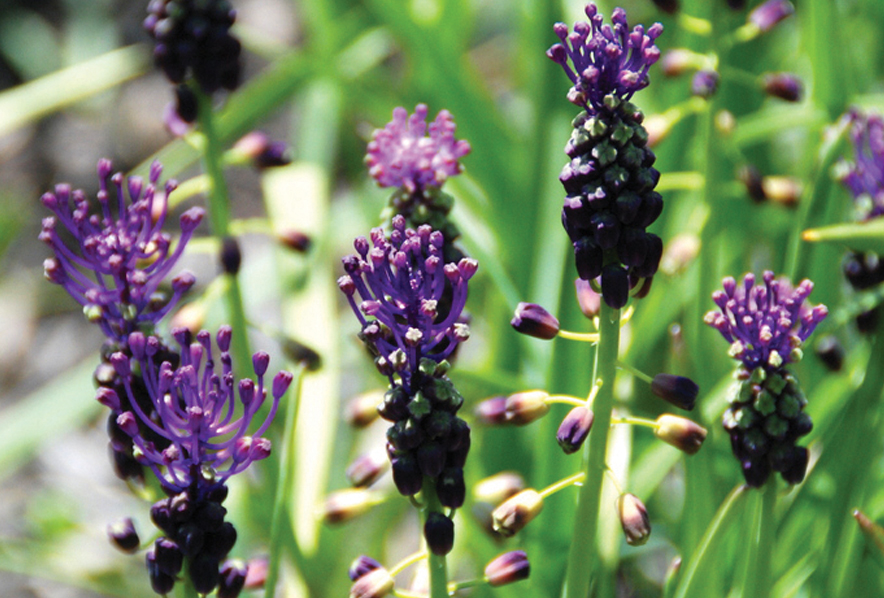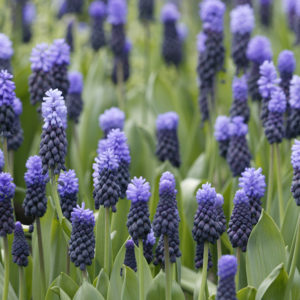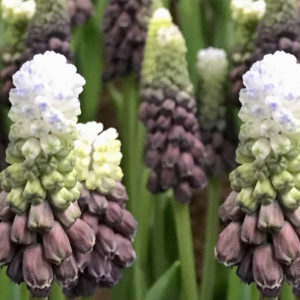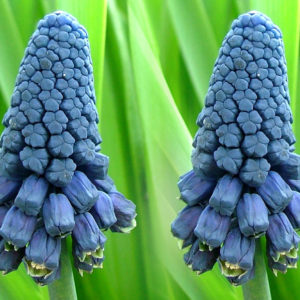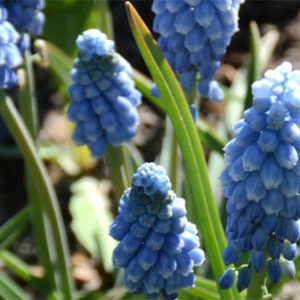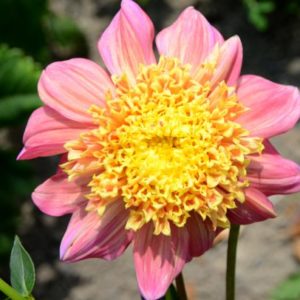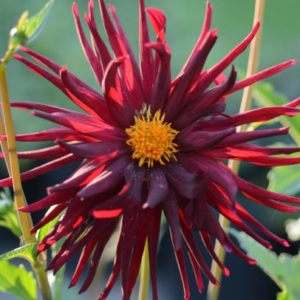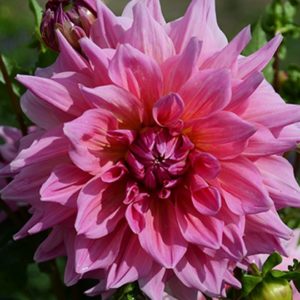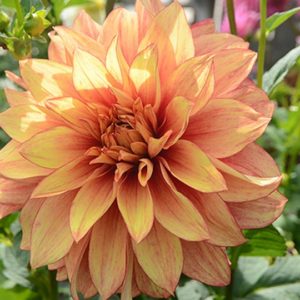Description
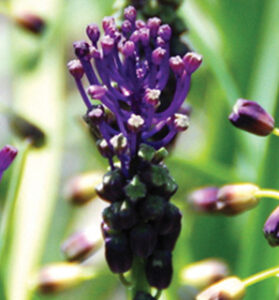 Muscari,
Muscari,
Comosum
Muscaris are some of the most beloved flowers of spring. Without fail, they can be counted on to pop their often true blue heads out of the ground shortly after the snowdrops have faded. They are some of the most famous of Spring’s greeters, and no one can pass by a drift of these curiously shaped beauties without cracking a gentle smile. They are some of the oldest spring flowers cultivated by mankind.
Muscari, also known as Grape Hyacinths or Pearls of Spain, are indigenous to the Mediterranean region where more than 50 different varieties can be found. The plants have been cultivated for many centuries. By 1576, cultivation notes indicated that muscari collected in Spain was being grown in gardens throughout Europe.
Spring is the only season where you can find an abundance of true blue color in your garden if you plant for it. The Muscari Family has more blue flowers than any other family of spring blooming bulbs. They are meant to be planted in large clusters that drift over a hillside, slope, meadow or lawn.
Muscari are a vigorous species which can survive in almost any soil and naturalize easily. The blooms of Muscari last longer than any other flower. They produce stems in succession providing flowers for weeks at a time. They are good forcers and are usually deerproof.
Planting Bulbs in the Fall for Glorious Spring Color
Bulbs are some of the easiest plants to grow. Fundamentally the process requires four steps.
1. Dig a hole.
2. Dust the hole with bone meal.
3. Place the bulb in the hole.
4. Fill the hole with soil.
There are, however, some additional refinements which help produce even more lavish results and enhance protection from critters.
First, bulbs can and should be planted deeper than the instructions you receive on the package labels. An easy way to remember how deep to plant the bulb is to think of a quarter. If the bulb you are planting has the same diameter as a quarter or less, plant the bulb 4 inches deep. If the bulb is broader than a quarter, plant it 6-10 inches deep. Large bulbs like some alliums, camassias, standard tulips and fritillaries can easily be planted 10 inches deep. As the soil compacts days, weeks and months after planting, it produces a thinner layer of soil on top of the bulb. Planting bulbs deep helps with critter control. Moles, voles, chipmunks and squirrels are lazy little creatures, and they don’t like doing a lot of digging to reach their food.
Second, bone meal is a must. It is an excellent source of calcium and phosphorus which help the bulbs to form a strong root system and healthy stems. For large bulbs (those bigger than a quarter), use ¼ cup per bulb. For small bulbs, dust the entire surface or hole where the bulbs will reside.
Third, small bulbs should be planted in clusters of 10 or more – 1 inch apart. Large bulbs, like allium, can stand along, but create a much more pleasing presence in the garden when planted is clusters of 3-5. They should be separated by no more than 4-6 inches.
Fourth, bulbs usually multiply fairly quickly and once crowded will not produce blossoms. Plan to divide your bulbs in mid-summer to fall when the top growth has dried out.
These simple, easy, quick tasks are all that is required to produce a lovely bulb display year after year.
Planting Bulbs in Containers
If you live in Hardiness Zones 5 and higher all you need to do is mix some soil. . Check out the soil mix described in detail in our Harvesting History YouTube video. Do not use prepared soil mixes.
The Best Soil Mix for Containers
Always plant bulbs more densely in containers than in the ground. Pots as small as 6-inches in diameter can have a showy presence on a deck, porch or patio. You can use much larger pots and plant several kinds of bulbs.
Fill the pot half full, dust the soil surface with bone meal, arrange the bulbs on top of the bone meal and fill the pot with the rest of the soil. Dust the surface of the soil with more bone meal. Water thoroughly, but do not let the pot stand in a saucer of water.
If you live in Hardiness Zones 1-4, you must protect the pots by bringing them into an unheated garage or surrounding them with bales of straw. If you do not do this, the bulbs usually freeze and turn to mush.

